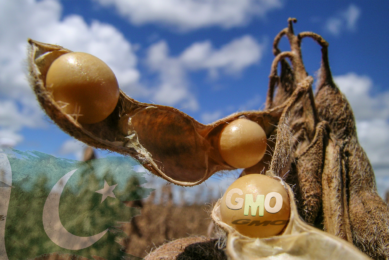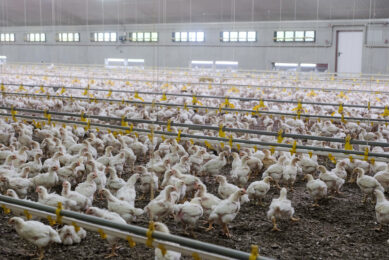Processing soy does not decrease its nutritional benefits

Sales of plant-based foods could top $160m by the end of the 2020’s as people look to reduce their greenhouse gas emissions and improve their health.
But concerns about the nutritional quality of plant-based alternatives and negative views about the impact of processing is shown to be a blocker for people making the change.
Protein quality of soy
It prompted scientists from Wageningen University and Research and Unilever to carry out a quantitative review of the protein quality of soy and the effect of processing. The team assessed the indispensable amino acid (IAA) composition and digestibility of varying soy products, to obtain digestibility amino acid scores (DIAAS) and protein digestibility corrected amino acid scores (PDCAAS).
Which products have high scores?
The higher the score, the better the protein source fulfils the body’s requirements, with a score of 75 and above considered good. Analysis of the data showed DIAAS increased from tofu, soy flakes, soy hulls, soy flour, soy protein isolate, soybean, soybean meal, soy protein concentrate and soymilk, which had the highest level. For all soy products combined, mean DIAAS was 84.5+ 11.4 and mean PDCAAS was 85.6 + 18.2.
Impact of processing
Amelia Jarman, Unilever Future Health and Wellness Science and Technology Director, said the results were the first time a study had comprehensively found that the protein quality of soy used in plant-based foods was not compromised during processing, contrary to previous misconceptions.
“In fact, processing soy slightly increases the protein’s nutritional quality. Given the rising demand from environmentally conscious consumers looking to transition away from meat but still looking for nutritious high-quality food, this research is very exciting as it proves that meat-free alternatives actually do fulfil our bodies’ protein requirements.”
Soy is a common ingredient in plant-based foods and contains 38g of protein per 100g – 3 times more than an egg. But soybeans cannot be added to a plant-based chicken chunk or an ice-cream without undergoing processing, which involves soaking, heating and dehulling.
Making healthier plant based options
Unilever said the knowledge it had gained from the latest research would help it reach its sustainability commitments and to innovate further plant-based meats.
Hanneke Faber, Unilever Nutrition Global President, said: “It’s not up to us to decide for people what they want to eat, but it is up to us to make healthier and plant-based options accessible to all.”
Unilever has committed to hit $1bn annual sales from plant-based meat and dairy alternatives by 2025-7.











